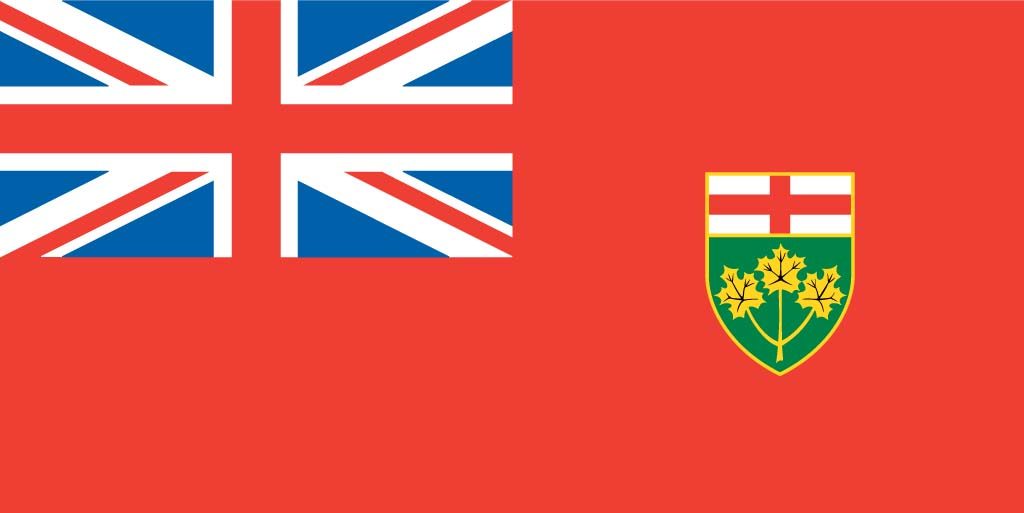
Ontario Divorce Information Network
Le Réseau d'information sur le divorce de l'Ontario
Separation In Ontario
If you are researching a divorce or separation in Ontario, the Ontario Dispute Resolution Platform offers a suite of educational tools and resources that will clarify your legal rights, help you to make smart decisions, create a personalized separation plan, and provide you with continued support.


Resources
Frequently Asked
WHAT IS FINANCIAL DISCLOSURE?
WILL FAILURE TO COMPLETE FINANCIAL DISCLOSURE AFFECT MY SEPARATION AGREEMENT?
THE PARENTING PLAN?
FORMAL VALUATION OF PENSIONS
RESEARCHING SEPARATION OR DIVORCE IN ONTARIO?
LITIGATION?
- UNCONTESTED DIVORCE?
Useful Links
SEPARATION IN ONTARIO
ARE YOU RESEARCHING SEPARATION OR DIVORCE IN ONTARIO?
The Ontario Divorce Information Centre provides a free suite of Ontario divorce resources, research information, and educational tools.
You can access the Ontario Divorce Information Centre at the link belowYou must register for a free user account in order to access Ontario Divorce Information Centre services including professional support, educational resources, articles, videos, and webinars specifically tailored to your situation.
SEPARATION
Negotiating your financial and parenting arrangements and legally signing a separation agreement are the crucial first steps in your divorce process. In essence, the separation agreement will be the ongoing contract between you and your spouse with regards to all issues moving forward. It is very important that this agreement is prepared properly and in accordance with the laws of Ontario, as the decisions you make now will affect you and your children for years to come.
If you and your spouse have decided to separate, it is time to begin thinking about your settlement arrangements as well as the preparation of a legal separation agreement. You do not need to go to court to settle arrangements between you and your spouse – nor do you need to go to court to enter into a separation agreement.
THE SEPARATION AGREEMENT
Signing a Separation Agreement Does Not Legally End Your Marriage
A separation agreement or court order may resolve some of your family matters but they do not legally end your marriage. In Ontario, the only way to legally end your marriage is to apply for a divorce decree. However, a divorce decree does not protect your interests or assets, ensure support payments, or guarantee any terms.
As part of your creating your separation agreement in Ontario, ensure that these vital elements are properly completed:
- Financial Disclosure
- Settlement of all Parenting Arrangements
- Child Support Obligations according to Provincial Child Support Guidelines
- Spousal Support Obligations
- Formal Valuation of Pensions
- Division of Assets
- Notional Tax Obligations
- Division of Debts
- Separation of the Matrimonial Home
- Future Dispute Resolution Clause
- Independent Legal Advice
WHAT IS FINANCIAL DISCLOSURE?
Financial disclosure is the process whereby both you and your spouse formally provide supporting documentation regarding all bank accounts, savings, cash on hand, investments, pensions, and any other assets – as well as declare any outstanding debts and liabilities for the present, for the date that you separated, and for the day you were married. Proper financial disclosure ensures that both parties being transparent about their assets (or debts) and allows each to make financial decisions based on real and accurate financial information.
Financial disclosure will confirm bank balances, account statements, property values, verify RRSPs, and/or gather necessary information on the value of a privately owned business. A formal pension valuation (as opposed to a pension statement) is required. The comprehensiveness of the process means there will be no mistakes; no misunderstandings; no secrets; and both spouses are protected. After you and your spouse finally reach an agreement and before you sign any documents, your financial disclosure should be reviewed by a lawyer to ensure that you are fully satisfied with your knowledge of the family finances.
WILL FAILURE TO COMPLETE FINANCIAL DISCLOSURE AFFECT MY SEPARATION AGREEMENT?
On May 2nd, 2015, the Family Law Rules in Ontario were updated to include additional requirements for financial disclosure. The law states: full and complete financial disclosure is a requirement for both spouses. Though the information in the financial disclosure is important – what really matters is that there has been a full and frank sharing of financial information.
The Family Law Act allows the Court to set aside (not enforce) any separation agreement that has not included full financial disclosure. If your separation agreement is not prepared properly from the beginning and is then later “set aside,” you may cost yourself more time and money in the long run. Additionally, without complete financial disclosure, a lawyer cannot give you proper legal advice about your situation.
THE PARENTING PLAN
A Parenting Plan is the written legal document that outlines how you and your spouse, as co-parents, will raise your children after your separation or divorce.Your parenting plan will focus on such parenting arrangement as:
- Child support and providing for your children’s needs
- How decisions about the children are made
- How information is shared between parents
- Where the children will live and when each parent will spend time with the child
- How children will have access to grandparents and other relatives
- How and where holidays and special occasions will be spent
- How new partners will be introduced to the children
- How other parenting issues may be addressed.
- A good Parenting Plan is created first and foremost with the children’s interests and needs in mind.
- When negotiated and prepared properly, it will help to reduce conflict between you and your ex-spouse by setting out clear guidelines and expectations.
CHILD SUPPORT
Child Support in Ontario must be calculated according to the Ontario Child Support Guidelines. Both parents maintain the responsibility of financially supporting their children and that support is based on their income and the number of children involved. In most cases, child support will continue until the children are 18 years old or until they have completed their post-secondary education.
The Family Responsibility Office (FRO) enforces support payments if necessary. The FRO will require paying parents to make all support payments to the FRO who will, in turn, send the payment to the other parent.
If any payments are missed, the FRO will take action to enforce the order or agreement, which can include the garnishing of wages, registering a lien against a property, taking money from a bank account, ordering a collection, cancelling a passport, or suspending a driver’s license.
SPOUSAL SUPPORT
In Ontario, the law views marriage as a financial partnership. When that partnership breaks down, the spouse with more income or assets may have to pay spousal support to the other spouse in order to equalize the financial situation as arrived at the break-up of that partnership.
The separation agreement will specify if any spousal support will be paid from one spouse to the other and, if so, how much, when, and for how long. The law considers a number of factors when deciding how much spousal support and the length of time that it should be paid, including how much support the asking person requires in order to meet their needs, and how much the other spouse can afford to pay. A person may ask for spousal support paid in installments or in a lump-sum to help them become financially self-sufficient.
If spousal support claims are waived, you must prepare your separation agreement properly in order to ensure that this waiver is binding and remains enforceable in the future. A professionally prepared separation agreement will not only capture such waivers with the proper legal verbiage but will also indicate why this waiver is included.
FORMAL VALUATION OF PENSIONS
A work pension is considered a matrimonial asset that must go into the divorce negotiations for fair and equitable distribution. It is therefore part of the division of assets that will be included in your Separation Agreement.
People often make the mistake of equating the value of a pension with the number written on a pension statement. There is a difference between a “pension statement” and the “pension valuation”. The pension statement does not include the valuation of the pension as an asset for family law. You should never make decisions about your pension without first receiving professional and legal advice.
THE MATRIMONIAL HOME
When couples separate, the family home is typically sold – either to one of the spouses or to a third-party buyer. A formal separation agreement will outline all financial terms of the sale before there is any change in home ownership.
A formal separation agreement is required to instruct the real estate lawyer how to disperse assets upon the sale of your home.
All Canadian Banks will require your legal separation agreement before they will approve you for a new mortgage. You will be required to qualify for a new mortgage based on your income and your debts alone. Support payments will be considered as part of your total debt load when banks review your application. Additionally, if you are the spouse receiving support payments, be aware that a bank might look unfavourably at your mortgage application if too great a percentage of your income is coming from support payments.
If both parties are still on an existing mortgage they are both are responsible for the payment of the mortgage and all taxes until one of them is removed.
Finally, unless there is a formal separation agreement in place, the purchasing spouse will be required to pay a land transfer tax on the purchase of the matrimonial home.”
DISPUTE RESOLUTION
Your Separation Agreement should include a clause describing the dispute resolution process by which potential future disagreements will be dealt with. It is an important clause that provides you the option to pursue any number of dispute resolution avenues depending on the situation. Typically, negotiations that were originally resolved out of court will include a similar family dispute resolution process to deal with future disagreements.
INDEPENDENT LEGAL ADVICE (ILA) FOR YOUR SEPARATION AGREEMENT
The Family Law Act grants the court the power to set aside or nullify a separation agreement or any clause in that contract if:
a spouse failed to disclose to the other significant assets, significant debts or other liabilities that existed when the Separation Agreement was made;
if a spouse signs an agreement while being forced, coerced or under duress
if a spouse did not understand the nature or consequences of the Separation Agreement; or
if the Separation Agreement was not prepared in accordance with the law of contract.
In order to understand their rights and responsibilities, each spouse is recommended to obtain independent legal advice before signing their final separation agreement. A lawyer providing ILA will also review the financial disclosures and explain if the contract is fair, valid, and enforceable.
It is in each person’s best interest to ensure sure that their spouse receives independent legal advice as well. When both spouses receive ILA, a separation agreement is presumed to be binding on both you and your spouse. Be aware, a lawyer cannot provide legal advice to both spouses.
Resources learn more
The Ontario Divorce Information Network
IMPORTANT learn more
Articles to read for filing a divorce
CAN MY SPOUSE AND I LIVE IN THE SAME HOUSE AND BE CONSIDERED “SEPARATED” BY CRA?
HOW WILL A CHANGE IN MY MARITAL STATUS AFFECT MY DIVORCE AND TAXES?
CANADA CHILD BENEFIT:
WORKING INCOME TAX BENEFIT (WITB) ADVANCE PAYMENTS:
ARE YOU RESEARCHING SEPARATION OR DIVORCE IN ONTARIO?
THE SEPARATION AGREEMENT